 W
WEdoardo Albinati is an Italian novelist.
 W
WSibilla Aleramo was an Italian feminist writer and poet best known for her autobiographical depictions of life as a woman in late 19th century Italy.
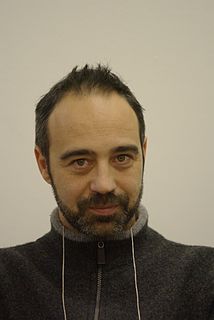 W
WNiccolò Ammaniti is an Italian writer, winner of the Premio Strega in 2007 for As God Commands.
 W
WAntonella Anedda is an Italian poet and essayist.
 W
WGiovanni Battista Angioletti was an Italian writer and journalist.
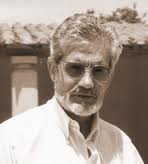 W
WGiulio Angioni was an Italian writer and anthropologist.
 W
WNino Alberto Arbasino was an Italian writer, essayist, and politician.
 W
WRiccardo Bacchelli was an Italian writer. In 1927 he was one of the founders of the review La Ronda and Bagutta Prize for literature. He was nominated for the Nobel Prize in Literature eight times.
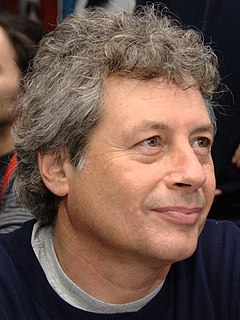 W
WAlessandro Baricco is an Italian writer, director and performer. His novels have been translated into a wide number of languages. He has two sons and he lives with his girlfriend Gloria Campaner.
 W
WGiorgio Bassani was an Italian novelist, poet, essayist, editor, and international intellectual.
 W
WDario Bellezza was an Italian poet, author and playwright. He won the Viareggio, Gatto, and Montale prizes.
 W
WMaria Villavecchia Bellonci was an Italian writer, historian and journalist, known especially for her biography of Lucrezia Borgia. She and Guido Alberti set up the Strega Prize in 1947.
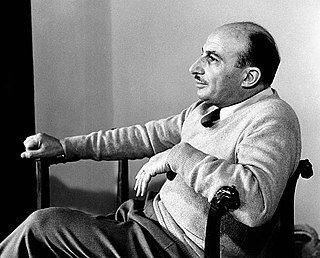 W
WCarlo Bernari is the pseudonym under which Italian author Carlo Bernard is known.
 W
WGiuseppe Berto was an Italian writer and screenwriter. He is mostly known for his novels Il cielo è rosso and Il male oscuro.
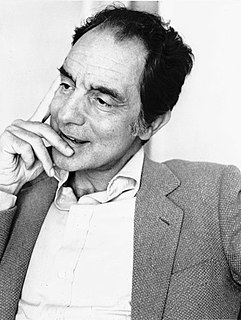 W
WItalo Calvino was an Italian journalist and writer of short stories and novels. His best known works include the Our Ancestors trilogy (1952–1959), the Cosmicomics collection of short stories (1965), and the novels Invisible Cities (1972) and If on a winter's night a traveler (1979).
 W
WAchille Campanile was an Italian writer, playwright, journalist and television critic known for his surreal humour and word play.
 W
WErnesto de Martino was an Italian anthropologist, philosopher and historian of religions. He studied with Benedetto Croce and Adolfo Omodeo, and did field research with Diego Carpitella into the funeral rituals of Lucania and the tarantism.
 W
WEugenio De Signoribus is an Italian poet. He was born and lives in Cupra Marittima in the province of Ascoli Piceno, Italy. He was winner in 2002 of the Castelfiorentino Literature Prize and in 2008 of the Viareggio Prize.
 W
WChiara Frugoni is an Italian historian and academic, specialising in the Middle Ages and church history. She was awarded the Viareggio Prize in 1994 for her essay, Francesco e l'invenzione delle stimmate.
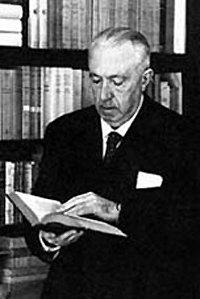 W
WCarlo Emilio Gadda was an Italian writer and poet. He belongs to the tradition of the language innovators, writers that played with the somewhat stiff standard pre-war Italian language, and added elements of dialects, technical jargon and wordplay.
 W
WCarlo Ginzburg is a noted Italian historian and proponent of the field of microhistory. He is best known for Il formaggio e i vermi, which examined the beliefs of an Italian heretic, Menocchio, from Montereale Valcellina.
 W
WAntonio Francesco Gramsci was an Italian Marxist philosopher, journalist, linguist, writer and politician. He wrote on philosophy, political theory, sociology, history and linguistics. He was a founding member and one-time leader of the Communist Party of Italy and was imprisoned by Benito Mussolini's Fascist regime.
 W
WRaffaele La Capria is an Italian novelist and screenwriter, known especially for the three novels which were collected as Tre romanzi di una giornata.
 W
WGavino Ledda is an author and a scholar of the Italian language and of Sardinian. He is best known for his autobiographical work Padre Padrone (1975).
 W
WCarlo Levi was an Italian painter, writer, activist, anti-fascist, and doctor.
 W
WPrimo Michele Levi was an Italian Jewish chemist, partisan, Holocaust survivor and writer. He was the author of several books, novels, collections of short stories, essays, and poems. His best-known works include If This Is a Man, his account of the year he spent as a prisoner in the Auschwitz concentration camp in Nazi-occupied Poland; and The Periodic Table (1975), linked to qualities of the elements, which the Royal Institution named the best science book ever written.
 W
WGrazia Livi was an Italian author and journalist.
 W
WSalvatore Mannuzzu was an Italian writer, politician, and magistrate.
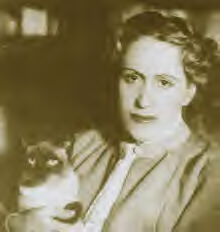 W
WGianna Manzini was an Italian writer whose Ritratto in piedi won her the Premio Campiello in 1971. It is a semi-autobiographical portrait of her father, an Italian anarchist. After several banishments for his political activities, her anarchist father was exiled to the small hilltop town of Cutigliano in 1921, 25 km northwest of Pistoia, where he would die of a heart attack in 1925 after being chased by fascist hoodlums.
 W
WAlda Merini was an Italian writer and poet. Her work earned the attention and the admiration of other Italian writers, such as Giorgio Manganelli, Salvatore Quasimodo, and Pier Paolo Pasolini.
 W
WElsa Morante was an Italian novelist, poet, translator and children's books author. Her novel La storia (History) is included in the Bokklubben World Library List of 100 Best Books of All Time.
 W
WAlberto Moravia was an Italian novelist and journalist. His novels explored matters of modern sexuality, social alienation and existentialism. Moravia is best known for his debut novel Gli indifferenti (1929) and for the anti-fascist novel Il Conformista, the basis for the film The Conformist (1970) directed by Bernardo Bertolucci. Other novels of his adapted for the cinema are Agostino, filmed with the same title by Mauro Bolognini in 1962; Il disprezzo, filmed by Jean-Luc Godard as Le Mépris ; La Noia (Boredom), filmed with that title by Damiano Damiani in 1963 and released in the US as The Empty Canvas in 1964 and La ciociara, filmed by Vittorio De Sica as Two Women (1960). Cédric Kahn's L'Ennui (1998) is another version of La Noia.
 W
WAldo Palazzeschi was the pen name of Aldo Giurlani, an Italian novelist, poet, journalist and essayist.
 W
WGoffredo Parise was an Italian writer, journalist, and screenwriter. He won the Viareggio Prize in 1965 for his novel Il padrone (The Boss) and the Strega Prize in 1982 for Sillabario n.2.
 W
WPier Paolo Pasolini was an Italian film director, poet, writer, and intellectual, who also distinguished himself as an actor, journalist, novelist, playwright, and political figure. He remains a controversial personality in Italy due to his blunt style and the focus of some of his works on taboo sexual matters. He was an established major figure in European literature and cinematic arts. His murder prompted an outcry in Italy and its circumstances continue to be a matter of heated debate.
 W
WVasco Pratolini was an Italian writer of the 20th century. He was nominated for the Nobel Prize in Literature three times.
 W
WGiorgio Pressburger was an Italian writer of novels and short stories.
 W
WVittorio Giovanni Rossi was an Italian journalist and writer.
 W
WUmberto Saba was an Italian poet and novelist, born Umberto Poli in the cosmopolitan Mediterranean port of Trieste when it was the fourth largest city of the Austro-Hungarian Empire. Poli assumed the nom de plume "Saba" in 1910, and his name was officially changed to Umberto Saba in 1928. From 1919 he was the proprietor of an antiquarian bookshop in Trieste. He suffered from depression for all of his adult life.
 W
WRoberto Saviano is an Italian writer, essayist, and screenwriter. In his writings, including articles and his book Gomorrah, he uses literature and investigative reporting to tell of the economic reality of the territory and business of organized crime in Italy, in particular the Camorra crime syndicate, and of organized crime more generally.
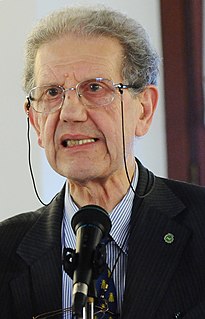 W
WSalvatore Settis is an Italian archaeologist and art historian. From 1994 to 1999 he was director of the Getty Center for the History of Art and the Humanities in Los Angeles and from 1999 to 2010 of the Scuola Normale Superiore in Pisa.
 W
WAntonio Tabucchi was an Italian writer and academic who taught Portuguese language and literature at the University of Siena, Italy.
 W
WMario Tobino was an Italian poet, writer and psychiatrist.
 W
WFulvio Tomizza was an Italian writer. He was born in Giurizzani di Materada in Istria, to a middle-class family of ancient southern Dalmatian origins. Tomizza grew up in a zone where the dialect was mixed.
 W
WPatrizia Valduga is an Italian poet and translator.
 W
WSandro Veronesi, born in Florence, Tuscany in 1959, is an Italian novelist, essayist, and journalist. After earning a degree in architecture at the University of Florence, he opted for a writing career in his mid to late twenties. Veronesi published his first book at the age of 25, a collection of poetry that has remained his only venture into verse writing. What has followed since includes five novels, three books of essays, one theatrical piece, numerous introductions to novels and collections of essays, interviews, screenplay, and television programs.
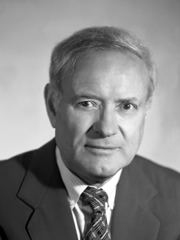 W
WPaolo Volponi was an Italian writer, poet, and politician.